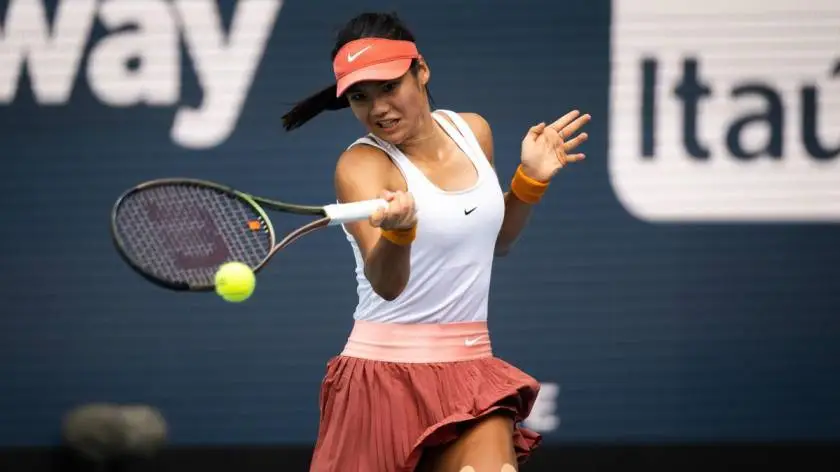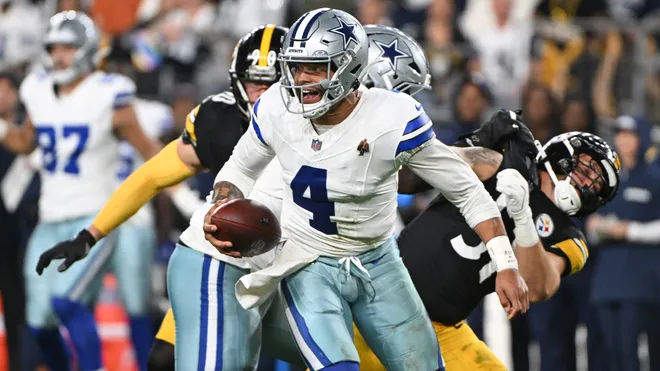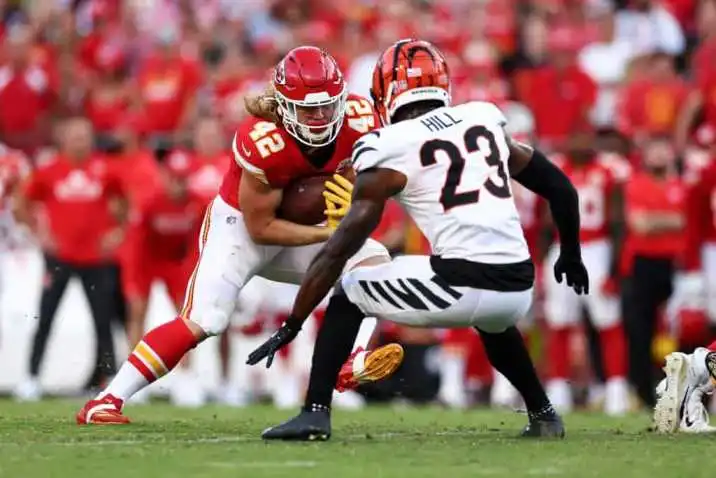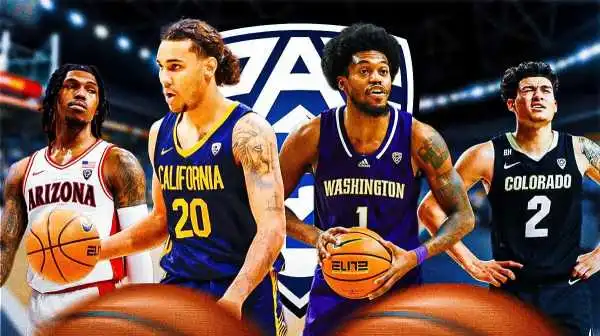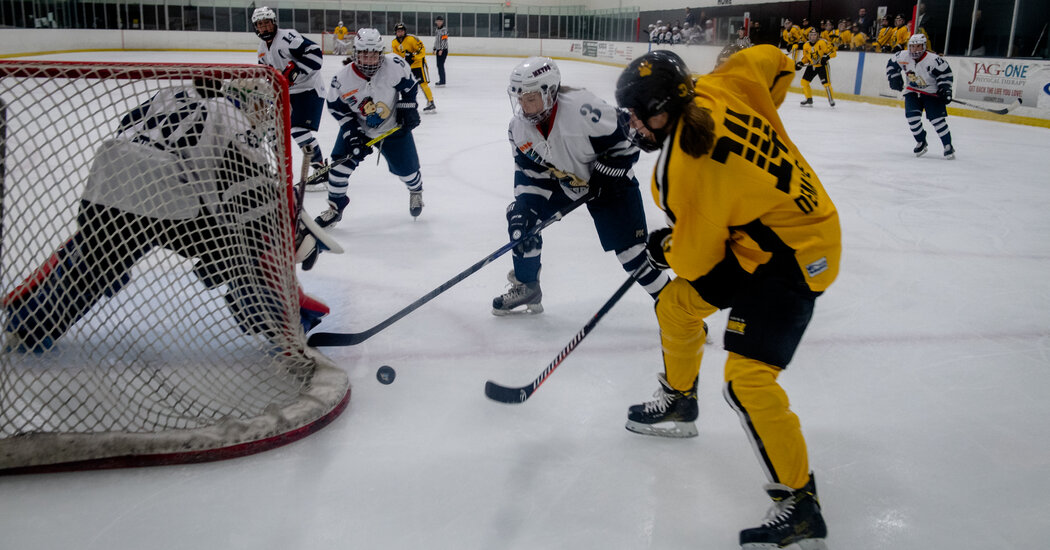
N.W.H.L. Prioritizes Independent Team Ownership in New Model
Tyler Tumminia has been named the interim commissioner of the National Women’s Hockey League, replacing the league’s founder, Dani Rylan Kearney.
The N.W.H.L. confirmed the change on Monday and announced that it was switching its operational model to an unincorporated association with a six-person board of governors to ensure “alignment of interests between the league and its teams.”
Under the previous system, the six-team league was owned by a group of investors that also controlled four of the league’s clubs, in the New York metropolitan area, Connecticut, Minnesota and Buffalo. Although the league sought independent owners for all six franchises, only two teams are independently owned — the Boston Pride and the Toronto Six, an expansion club for the 2020-21 season.
Since its inception in 2015, the N.W.H.L. operated more like a single entity — like Major League Soccer — with salary limits and investors or shareholders controlling major decisions for the teams. This differs from the models used by the N.H.L. and the N.F.L., which the N.W.H.L. will now attempt to mimic.
Martin Edel, a lecturer at Columbia Law School who specializes in sports law, said that the single-entity model of the last 20 years or so was built primarily on trying to avoid the antitrust laws, like Section 1 of the Sherman Act, rather than on growth.
“I haven’t seen new leagues that have arisen since the early 1990s come up in the traditional model; that’s why this is frankly surprising,” Edel said of the N.W.H.L.’s switch. “Is that a better model for growth? It could be.”
The older model became challenging to uphold after Miles Arnone, a venture capitalist, purchased the Pride in 2019, and Boston seemed to gain a clear advantage over the rest of the teams.
Pride players praised the provided equipment, training and travel amenities, which trumped those of the league-owned teams. Boston recorded the best record in the league at 23-1-0 and made the Isobel Cup final (which was canceled because of the coronavirus pandemic). The Buffalo franchise was briefly owned — from late 2017 to the spring of 2019 — by Pegula Sports and Entertainment, the parent company of the N.H.L.’s Buffalo Sabres and the N.F.L.’s Buffalo Bills, and that team had similar success.
Rylan Kearney will remain with the league and lead the pursuit of securing independent ownership for the Metropolitan Riveters, the Connecticut Whale, the Minnesota Whitecaps and the Buffalo Beauts.
She declined an interview request for this article on Monday, but on Tuesday, on Twitter, she wrote: “Five years and two days after our first games, this is a historic day as the NWHL adopts a new governance model. Commissioner Ty Tumminia is a rock star and the perfect woman to lead.” She added: “I am extremely proud of what the NWHL has achieved, grateful to the fans, players, partners, staff, and woho media,” a reference to reporters covering women’s hockey, “and I am more inspired than ever to play my part in the continued development of Hockey For All.”
Andy Scurto, an insurance and tech entrepreneur who is on the new board of governors, thanked Rylan Kearney in a statement for bringing the league “where it is today.”
“Tyler brings a wealth of relevant experience and we are confident that she will help take the league to the next level,” he added, referring to Tumminia, the interim commissioner.
For five years, Rylan Kearney had been the lone visible face of N.W.H.L. leadership and took the brunt of criticism for missteps.
When many around the hockey world called for merging competing women’s hockey leagues, she remained confident that the N.W.H.L. was pushing toward creating the best environment available for female hockey players.
After playing ice hockey at Northeastern, Rylan Kearney moved to New York and opened a coffee shop in East Harlem. At the time, women’s professional hockey was almost nonexistent in the United States, with one team in Boston playing in the Canadian Women’s Hockey League.
Rylan Kearney saw an opening to bring women’s pro hockey to the U.S., starting with four teams in the N.W.H.L. The league signed Olympians and stars from the C.W.H.L., like Hilary Knight and Meghan Duggan.
But during the N.W.H.L.’s second season, the league incurred financial troubles, including lawsuits, and slashed player salaries, creating distrust from several top players. In a 2017 interview with The New York Times, Rylan Kearney acknowledged that it was more difficult than she envisioned to get major companies on board supporting women’s sports.
After many players left the N.W.H.L., Rylan Kearney secured partnerships with companies like Twitch that somewhat stabilized the league’s standing. The N.W.H.L. added franchises in Minnesota in 2018, and Toronto in April.
The N.W.H.L., which will begin its sixth season in January, will now turn to Tumminia to pursue the broadcast rights deals and partnerships with major brands that have largely eluded women’s hockey. The C.W.H.L. folded in 2019 because of economic troubles. The Canadian league operated as a centrally funded, nonprofit enterprise. Last season, the N.W.H.L.’s highest announced salary was $15,000.
Tumminia first got involved with the N.W.H.L. this year as the chairwoman of the Toronto team, a position she will leave because of her new post. Previously, Tumminia helped run several minor league baseball teams with a focus on sponsorship and marketing.
“This is a time of opportunity and transformation for the N.W.H.L., and the changes we are making across the league will fortify a foundation for continued success well into the future,” Tumminia said in a statement.
Tumminia’s ascent arrives at a time when women’s hockey is at a standstill because of the coronavirus pandemic. A majority of N.C.A.A. Division I women’s college hockey conferences have indefinitely delayed their 2020-21 seasons, while some Division III conferences have canceled theirs. Several international tournaments have been canceled, and the Professional Women’s Hockey Players Association, a barnstorming group that includes players like Knight and other top Olympians, is operating with a limited schedule.
Members of the P.W.H.P.A. have been resolute in creating their own path toward a pro league that can provide players livable salaries, which the N.W.H.L. does not yet provide.
Replacing Rylan Kearney with Tumminia will probably not change the stance of the P.W.H.P.A., but her marketing experience could open up avenues to untapped sponsors or potential team owners.



